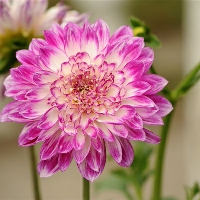A total of 450 points beyond the number of words are directly included in the original score of the college entrance examination; The first choice subject "1" is either physics or history, and the full score of 100 points is directly included in the original score of the college entrance examination; The re selected subject "2" will be selected in two of the chemical, biological and land policies, and the full score of 100 points each will be converted into the form of college entrance examination score, which will be included in the original score of college entrance examination.
Jiangsu 2021 Eight Provinces Joint Examination Score
Data description: The data in this form is based on the scores and positions shared by the examinees and parents, and is only for reference. The details are subject to the official release.
What is the first line of Jiangsu New College Entrance Examination
The college entrance examination in Jiangsu Province in 2021 has changed to 750 points. According to normal scientific prediction, a score line should be 395+210=605 points.
(1) Jiangsu's current college entrance examination has been known as the "Hell Mode" for many years. The difficulty of the college entrance examination questions is not the most difficult, only more difficult. The three subjects of Chinese, mathematics and English in the college entrance examination, which are famous throughout the country, are relatively difficult to do, resulting in low scores in the college entrance examination every year! For example, in 2018, the score of a science textbook was 336 points, and that of a liberal arts textbook was 337 points; In 2019, the score of a science textbook was 345 points, and that of a liberal arts textbook was 339 points. In the past two years, the average score of each subject was almost a little more than 110.
(2) The use of national test papers in the subjects of Jiangsu New College Entrance Examination Chinese, Mathematics and English is bound to greatly reduce the difficulty of the test questions. Let's calculate according to the reasonable range of reducing the difficulty of the test questions by 20%, which means that Jiangsu students can increase their scores by 20% in the subjects of the college entrance examination, then the total score of the three subjects of Chinese, Mathematics and English will be correspondingly increased by 66 points, leaving aside the 6 points difference, It will be calculated as 60 points higher, so that the score line of Jiangsu National College Entrance Examination should be around 395 points.
(3) The first choice subject and the second choice subject can reach one admission score line in Jiangsu. How can you get 70 points or more in each subject! The college entrance examination score of the first choice subject "1" physics or "one out of two" in history is directly included in the original total score of the college entrance examination based on the true score; The college entrance examination results of the second selected subject "2", "two out of four", of chemical, biological and land administration, are converted from the test paper results into the score giving results and included in the original total score of the college entrance examination. In any case, if you want to go to a university in Jiangsu, it is quite difficult to get a total score of 210 points.

